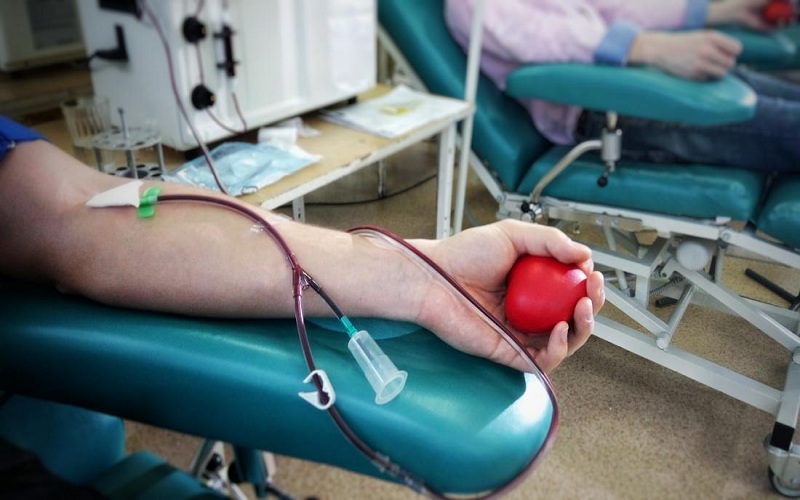Table of Contents
Key Takeaways:
- Plasma donation is crucial for saving lives and aiding in medical treatments.
- Plasma contains essential proteins, antibodies, and clotting factors important for immunity and the production of medications.
- Donating plasma can directly impact the lives of patients and improve their quality of life.
- Eligibility criteria and pre-donation screening processes ensure the safety of both donors and recipients.
- Certain medical conditions or medications may affect eligibility to donate plasma.
- Staying hydrated and consuming a balanced diet is important for a successful plasma donation.
- Managing anxiety through relaxation techniques can improve the donation experience.
- Plasma donation is generally not painful, and safety measures are in place at collection centers.
- Donor compensation is meant to recognize effort, not as the primary motivation for donation.
1. Why Plasma Donation Matters
Plasma donation plays a crucial role in saving lives and aiding in medical treatments. Plasma, the liquid portion of blood, is rich in essential proteins that help to maintain blood pressure, carry nutrients, and fight infections. By donating plasma, you can contribute to the creation of life-saving therapies for patients suffering from various medical conditions.
1.1 The Healing Power of Plasma
Plasma is a vital component of the human body’s defense mechanism. It contains antibodies, which help fight against diseases and infections. These antibodies are important in providing immunity and are often used in the production of vaccines and medications. Plasma also contains clotting factors, which are crucial for individuals with bleeding disorders.
1.2 The Essential Role of Plasma in Medical Treatments
Plasma is used in the treatment of a wide range of medical conditions, including burn injuries, liver diseases, immune deficiencies, and certain neurological disorders. It is also used to manufacture medications for patients with hemophilia, tetanus, and other conditions. Plasma donations are essential to ensure an adequate supply of this life-saving resource.
1.3 How Your Plasma Donation Can Save Lives
Donating plasma can directly impact the lives of patients in need. Patients receiving plasma transfusions often require regular donations to maintain their health and well-being. By donating plasma, you can contribute to the development of therapies that improve the quality of life for these individuals. It’s a selfless act that can make a significant difference in someone’s life.
1.4 Plasma Giving Requirements: A Comprehensive Overview
Before donating plasma, it’s important to understand the eligibility criteria and the pre-donation screening process. These measures ensure the safety of both the donor and the recipient.
2.1 Understanding the Eligibility Criteria for Plasma Donation
To be eligible to donate plasma, individuals must meet certain plasma giving requirements. These criteria include age restrictions, weight limitations, and general health conditions. The eligibility criteria are established to ensure the safety of both donors and recipients, as well as to maintain the quality of the collected plasma.
2.2 Pre-Donation Screening Process: What to Expect
Prior to donating plasma, donors undergo a thorough screening process. This process includes medical history assessments, physical examinations, and laboratory tests to ensure the health and safety of both the donor and the recipient. It is important to disclose any relevant medical conditions or medications during the screening process for accurate assessment.
2.3 Common Medical Conditions That May Affect Your Eligibility
While many individuals are eligible to donate plasma, certain medical conditions or medications may temporarily or permanently prevent one from giving plasma. Conditions such as recent surgeries, infections, or chronic illnesses may affect eligibility. It is crucial to consult with the donation center to determine if any medical conditions or medications may impact your ability to donate.
3 .Preparing for a Successful Plasma Donation
Preparing for plasma donation can help ensure a successful and efficient process. Taking the necessary steps to prepare physically and mentally can contribute to a positive experience.
3.1 Staying Hydrated: The Importance of Drinking Water
Hydration is vital when it comes to donating plasma. Drinking an adequate amount of water in the days leading up to your donation can help ensure optimal plasma volume and prevent complications. It is recommended to consume at least 64 ounces of water daily to maintain hydration levels.
3.2 Eating Right to Maximize Plasma Donation Efficiency
A nutritious diet plays a significant role in the effectiveness of plasma donation. Consuming iron-rich foods, such as lean meats and leafy greens, can help maintain healthy iron levels and prevent iron deficiency anemia. Additionally, eating a balanced diet with sufficient protein and vitamins can promote overall well-being and enhance plasma production.
3.3 How to Relieve Anxiety and Make Your Donation Experience Pleasurable
Donating plasma can be a stressful experience for some individuals. It is important to find ways to manage anxiety and make the process more enjoyable. Techniques such as deep breathing exercises, listening to calming music, or engaging in positive visualization can help relieve stress and improve the overall donation experience.
4. Plasma Donation Myths Debunked
There are several myths and misconceptions surrounding plasma donation. It is important to separate fact from fiction to encourage more individuals to contribute to this life-saving cause.
4.1 Dispelling the Fear: Is Plasma Donation Painful?
Contrary to popular belief, plasma donation is generally not a painful process. The needle insertion may cause mild discomfort for some individuals, but it is typically well-tolerated. During the donation, donors may experience a cooling sensation as their plasma is collected, but any discomfort is temporary and outweighed by the positive impact the donation can make.
4.2 Understanding the Safety Measures in Plasma Collection Centers
Plasma collection centers adhere to stringent safety protocols to ensure the well-being of both donors and recipients. These measures include the use of sterile equipment, thorough screening processes, and regular testing for infectious diseases. Donors can have peace of mind knowing that their donation is collected in a safe and controlled environment.
4.3 Addressing Misconceptions Surrounding Donor Compensation
In some regions, donors may receive compensation for their plasma donations. This compensation is intended to recognize the time and effort put into the donation process rather than to encourage individuals to donate solely for financial gain. It is essential to understand that the primary motivation for donating plasma should be the desire to help others and make a meaningful impact.
By understanding the importance of plasma donation, the eligibility requirements, and the preparation process, you can become a confident and knowledgeable donor. Donating plasma is a noble act that can save lives and improve the well-being of patients in need. Take the first step today and make a difference through plasma giving!
FAQ
Question: What medical conditions can be treated with plasma donations? – Plasma is used in the treatment of a wide range of medical conditions, including burn injuries, liver diseases, immune deficiencies, and certain neurological disorders. It is also used to manufacture medications for patients with hemophilia, tetanus, and other conditions.
Question: How does plasma donation save lives? – Donating plasma can directly impact the lives of patients in need. Patients receiving plasma transfusions often require regular donations to maintain their health and well-being. By donating plasma, you can contribute to the development of therapies that improve the quality of life for these individuals.
Question: What are the eligibility criteria for plasma donation? – To be eligible to donate plasma, individuals must meet certain requirements. These criteria include age restrictions, weight limitations, and general health conditions. The eligibility criteria are established to ensure the safety of both donors and recipients, as well as to maintain the quality of the collected plasma.
Question: What is the pre-donation screening process like? – Prior to donating plasma, donors undergo a thorough screening process. This process includes medical history assessments, physical examinations, and laboratory tests to ensure the health and safety of both the donor and the recipient. It is important to disclose any relevant medical conditions or medications during the screening process for accurate assessment.
Question: Can certain medical conditions affect eligibility to donate plasma? – While many individuals are eligible to donate plasma, certain medical conditions or medications may temporarily or permanently prevent one from giving plasma. Conditions such as recent surgeries, infections, or chronic illnesses may affect eligibility. It is crucial to consult with the donation center to determine if any medical conditions or medications may impact your ability to donate.
Question: How should I prepare for a plasma donation? – Preparing for plasma donation can help ensure a successful and efficient process. Taking the necessary steps to prepare physically and mentally can contribute to a positive experience. Staying hydrated, eating a balanced diet, and managing anxiety through relaxation techniques are important factors in preparation.
Question: Is plasma donation painful? – Contrary to popular belief, plasma donation is generally not a painful process. The needle insertion may cause mild discomfort for some individuals, but it is typically well-tolerated. During the donation, donors may experience a cooling sensation as their plasma is collected, but any discomfort is temporary and outweighed by the positive impact the donation can make.
Question: What safety measures are in place at plasma collection centers? – Plasma collection centers adhere to stringent safety protocols to ensure the well-being of both donors and recipients. These measures include the use of sterile equipment, thorough screening processes, and regular testing for infectious diseases. Donors can have peace of mind knowing that their donation is collected in a safe and controlled environment.
Question: What is the purpose of donor compensation? – In some regions, donors may receive compensation for their plasma donations. This compensation is intended to recognize the time and effort put into the donation process rather than to encourage individuals to donate solely for financial gain. It is essential to understand that the primary motivation for donating plasma should be the desire to help others and make a meaningful impact.

